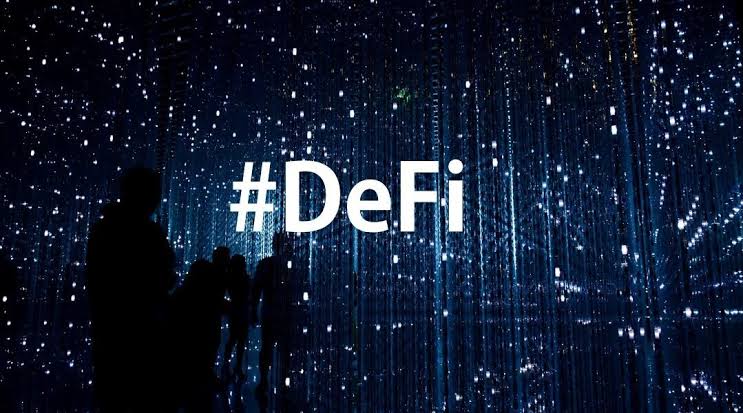Decentralized finance, also known as DeFi, has seen explosive growth recently with the advent of Ethereum and smart contracts.
DeFi is often touted as the future of banking, allowing users to enjoy a global banking system without having to deal with legacy financial institutions or overbearing government regulations.
In this post, we’ll be looking at what DeFi actually means, where it came from, and its effect on the banking industry in the future.
What Are Decentralized Exchanges?
Decentralized finance (DeFi) platforms are distributed open-source protocols running on top of a blockchain.
They operate peer-to-peer, meaning that users can hold their own funds and make trades directly with each other without relying on third parties.
Decentralization is not just about removing intermediaries in order to cut out transaction fees, it’s also about allowing individuals to regain control over their money by safeguarding against censorship, corruption, or theft.
The Future of Interest Rates on Cryptocurrencies
In modern economies, interest rates are a big deal. The rate that banks charge to lend out money is one of the biggest economic indicators available, and predicting it correctly can have huge consequences for businesses and governments alike.
Decentralization, however, is an often overlooked force that’s having a massive effect on interest rates, specifically those for cryptocurrencies like Bitcoin.
In fact, researchers are now claiming that decentralized finance is far more efficient than traditional financial models and could drastically reshape how we view interest rates in general.
What Are Cryptocurrency Lending Platforms?
Crypto lending platforms leverage crypto assets to create peer-to-peer loans, often at more attractive interest rates than what traditional lenders offer.
Some crypto lenders offer fiat on-ramps, allowing crypto holders to access fiat by borrowing against their holdings and then locking up those assets for a certain amount of time and getting a tradable digital IOU in return.
DeFi projects are still in their infancy, but there are several interesting projects out there worth looking at, such as Tezos (XTZ), VChain Token (VET), and Orbeon Protocol (ORBN).
These protocols and more represent some of the best ways DeFi applications are changing the way we live and invest today, which is important because they all have huge potential to democratize finance in many developing markets around the world.
Let’s consider a few examples:
Tezos
Tezos is an open-source platform for assets and applications that can evolve by upgrading itself. Stakeholders govern upgrades to the core protocol, making it one of the more decentralized blockchain systems.
Tezos contains the related digital currency, Tez (XTZ), which is also known as Tezzie.
Tezos, like other blockchains for cryptocurrencies, allows users to take part in DeFi, decentralized apps, and NFT initiatives.
Being a novel blockchain, demand for the Tezos coin (XTZ) is high yet most of the circulating supply is already being used up via staking. Besides its decentralization, this situation makes XTZ an interesting long-term investment.
VeChain
VeChain is a blockchain platform meant to better supply chain management and company operations. Its purpose is to simplify these procedures and information flow for complicated supply chains via the use of distributed ledger technology (DLT).
The VeChain platform has two unique tokens:
- VeChain Token (VET), and
- VeChainThor Energy (VTHO)
The former is used to transmit currency across VeChain’s network while the latter is utilized as energy or ‘gas’ to fuel smart contract transactions.
Orbeon Protocol
Orbeon protocol is an investing platform that is transforming the crowdfunding and venture capital market making it possible for anybody to fractionally participate in some of the most interesting and promising early-stage enterprises.
Startups can acquire funding and participate with their community by giving incentives and equity-based NFTs. When company A wishes to launch a financing round, Orbeon Protocol will mint an NFT for company A and fractionalize the NFTs allowing regular individuals to acquire tiny fractions of the NFTs that reflect an investment in company A.
_________________________________________






